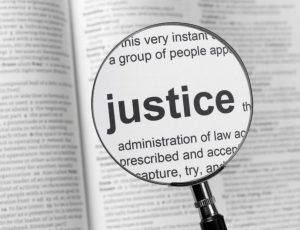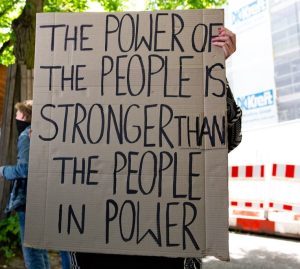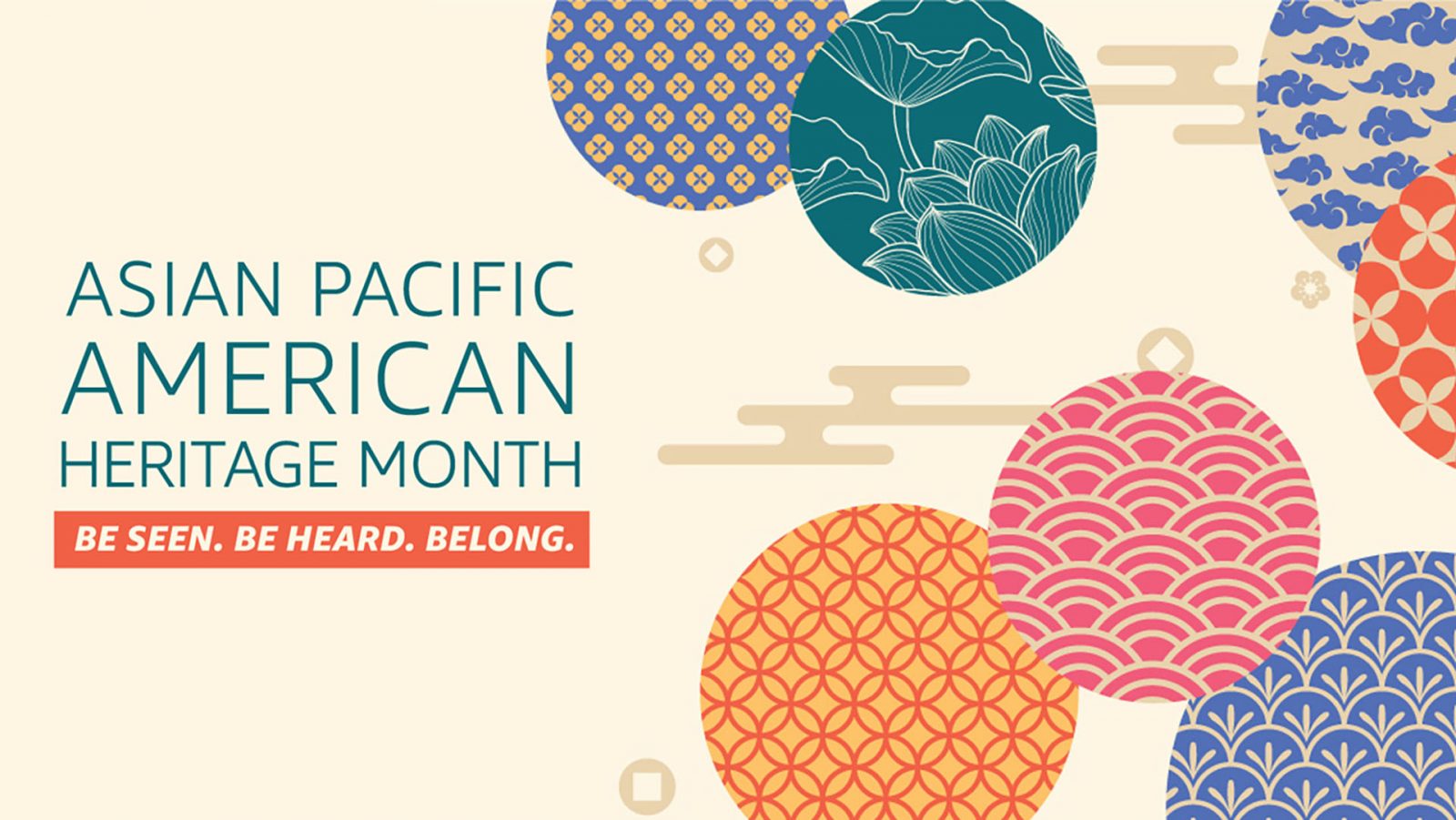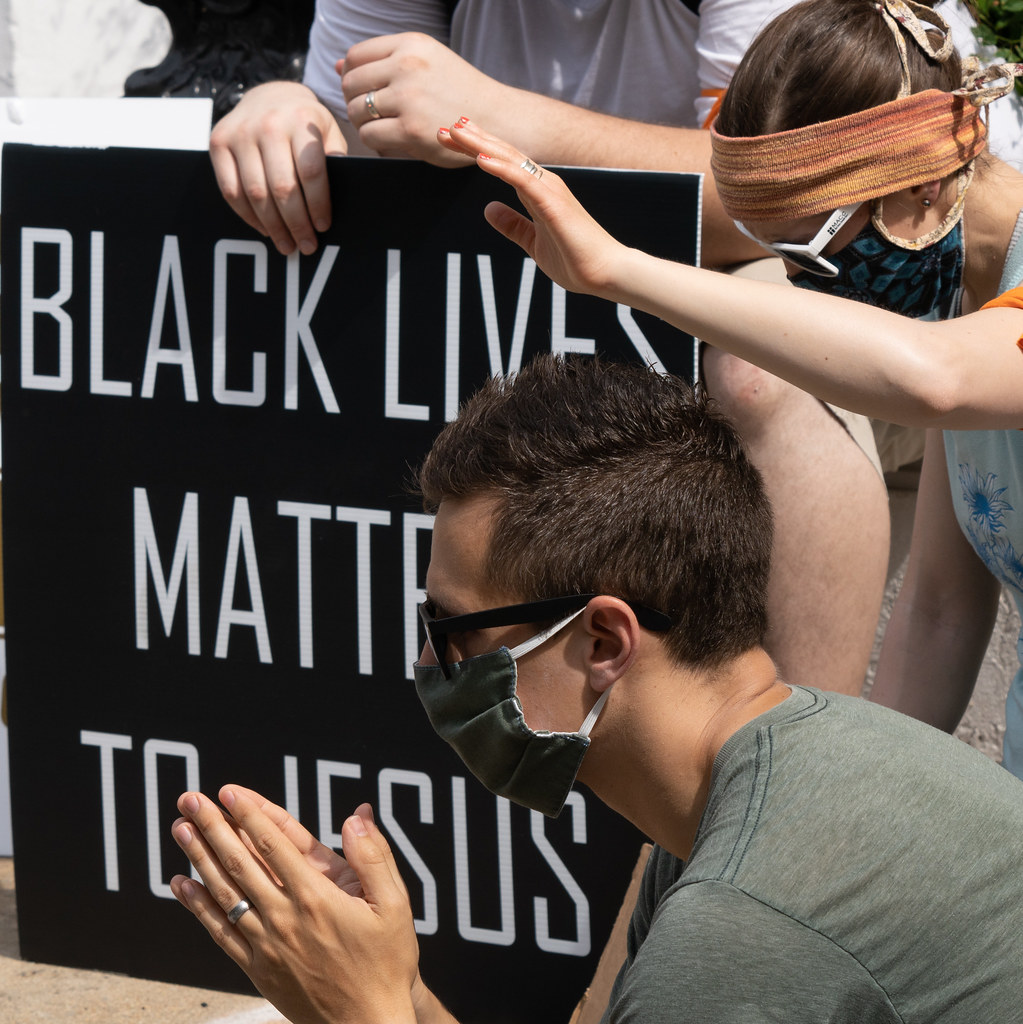Home » civil rights (Page 2)
Category Archives: civil rights
It’s Hard Right Now, but Keep Moving Forward
 Denise Moorehead, UU Class Conversations
Denise Moorehead, UU Class Conversations
I sat in a staff meeting on Wednesday morning, May 25, 2022, listening to my colleagues share their reactions to a gunman’s rampage that killed 19 children and two teachers in Uvalde, Texas, the day before. We are administrators for private schools serving students from 2 to 20 years old. The head of our team said his first response was to scream, “NO MORE.” Another — the most buttoned-down one among us — said she was so #!!*ing tired of the carnage followed by nothing from those at the highest levels elected to make change.
When we talked about the steps we’d taken/needed to take to support our students and parents, the remarks by one school director broke my heart. She said with a deep sigh, “We sent an email to parents last night. We updated a message that was first written to families 10 years ago after the Newtown, Conn., massacre.” She added that she had updated that letter countless times for the many mass shootings since Newtown as well as for state-instituted killings like that of George Floyd.
In the past decade, our schools have made a substantial investment in improving security and in preparing students and staff to react quickly in cases of a dangerous intruder. So, why are we stuck in the same place 10 years after Newtown? As one politically-active colleague said of her own social justice efforts, “Why even bother anymore?”
Why? Because we must.
But It’s Hard
I have been involved in social justice work since I was a child. My mom took me to community-building activities while I was still in grade school. These are hard times for people who believe in social justice, equity, and addressing classism and racism.
The expected overturning of Roe v. Wade will most severely impact women and families with less class advantage. According to a May 2022 NPR report on the landmark Turnaway Study, women denied an abortion were four times more likely to be living in poverty years later than those who had one. Their children were less likely to attain higher education were more likely to be involved in crime and had lower adult earnings.
According to a recent study by Columbia University researchers, more than 3.7 million children in the U.S. slipped into poverty when conservative members of Congress refused to extend the expanded Child Tax Credit beyond December 2021. States across the nation have outlawed telling the truth about racism and the racial wealth gap, allowing transgender children to become themselves or even providing water to people waiting in line to vote (in under-resourced primarily black and brown areas). The proliferation of new voter suppression laws is meant to keep people of color and those with less class advantage from participating in American democracy. And this is the tip of the iceberg when we look at the backpedaling of policies that have advanced social justice, equity and equality.
The effects of these policy reversals have not and will not directly touch the lives of people in the sphere of our elected officials. Over half of the members of Congress are well-educated millionaires from safe neighborhoods with “good schools.” According to FundHero December 2020 research, even in local elections the average cost for each vote received is $1.00. I don’t know about you, but I don’t have $5,000 to be elected to the local Library Board.
It’s no surprise then, that most federal and local policies support those with more class advantage. This is true of gun laws also. According to Mark S. Kaplan, professor of Social Welfare at UCLA, there is a strong relationship between poverty, inequality and firearm violence*.
It’s Up to Us
It is hard to keep up the fight for justice right now, whether it is for social class, race, gender, LQBTQ+, disability rights and/or other forms of equity. But oppression can only fester and grow when people give up hope for a future that holds promise for each person. We can pause for a few moments to feel sad, overwhelmed and discouraged. We are human. But then we have to take a breath, regroup and keep pushing forward.
Here are just some of the lesser-known social justice pioneers I appreciate:
- Frances Perkins, the first woman to serve as a member of a U.S. president’s Cabinet and a champion of those with less class advantage.
- South African students who mobilized and led the 2015-17 #RhodesMustFall and #FeesMustFall movements that fundamentally changed the landscape of higher education in South Africa.
- U.S. racial justice heroes like John Lewis, A. Philip Randolph, Bayard Rustin, Ella Baker, Callie House and Fred Korematsu, Lupe Anguiano and Chrystos (Menominee)
- Frank Bowe who worked to help people with disabilities
- Modern-day and historical women’s rights activists like Panusaya Sithijirawattanakul and Emmeline Pankhurst
- Environmentalists like Nnimmo Bassey
Who are the modern-day and historical (s)heroes who inspire you to stay the course when you feel like giving up? Share yours in the comments below.
*The gun lobby is bankrolled by people and companies with deep pockets. Some contributors to the still powerful National Rifle Association have been Remington Outdoor Company (formerly Freedom Group), Smith & Wesson, Beretta USA, Springfield Armory, and Sturm, Ruger & Co. as well as accessories vendors MidwayUSA and Brownells (Violence Poverty Center). Individual contributors include more than a dozen wealthy Russians. The NRA, in turn, lines the campaign coffers of politicians willing to do its bidding.
Down with CRT?
“George Floyd protest” by vpickering
Critical Race Theory, or CRT, is an academic and legal framework that denotes that systemic racism is part of American society — from education and housing to employment and healthcare. Critical Race Theory recognizes that racism is more than the result of individual bias and prejudice. It is embedded in laws, policies and institutions that uphold and reproduce racial inequalities.
— Legal Defense and Educational Fund, Inc.
Critical Race Theory, or CRT, became the new rallying cry for people on the far right in 2021. A year before, there were rumblings against the highly academic and legal framework. But the rhetoric reached an entirely new level when then-President Donald Trump signed an executive order in 2020 prohibiting federal agencies from conducting diversity, equity and inclusion training. He justified his order by claiming that such training represented reverse racism and were part of the left’s efforts to indoctrinate people into its way of thinking through CRT.[i]
By falsely calling any discussion of racism, white supremacy, inclusion and/or equity CRT, those spreading this false narrative have succeeded in convincing even moderates – and not a few liberals – that the concept is divisive and harmful for children and harmful for American society as a whole.
Causing Harm and Shame
According to Florida Governor Gov. Ron DeSantis, CRT teaches kids to hate each other and is “state-sponsored racism.” Texas Senator Ted Cruz suggests that CRT causes white children to feel shame, shame that some of his fellow conservatives say can cause mental illness in these children. According to Spectrum News, Cruz tells fellow conservatives that they can spot CRT in texts that use the word “equity” frequently.
Armed with this misinformation, thousands of parents have stormed school committee meetings across the United States. The situation became so extreme that Reuter’s news agency commissioned a study on the issue. It reveals that more than half of the 31 school boards contacted said they had added extra security at meetings, limited public comment or held virtual meetings when in-person gatherings became too chaotic. (The 31 school boards contacted were just a microcosm of those actually affected.) In Loudoun County, Va., a letter was sent to one of the adult children of Brenda Sheridan, a school board member. It threatened to kill Sheridan and her child unless she left the board.
Sadly, the disruption has been rewarded. According to a Time.org April 14, 2022, article, 42 states have introduced bills or taken other steps that would restrict teaching CRT or limit how teachers can discuss racism and sexism. Seventeen states have imposed these bans and restrictions either through legislation or other avenues. Some ask parents, teachers and/or administrators to “turn in” teachers or professors who teach CRT or some of its supposed concepts. Voice of America reports that a bill passed in Indiana “permits parents to bring complaints and legal action against schools.”
But is CRT actually causing this harm and shame or is it our country’s inability at best and outright refusal at worst to deal honestly with racism and the long-term results of white supremacy?
I argue that in the hands of people like Cruz and DeSantis, CRT stands for Conservatives’ Revisionist Truthlessness.
Unintentional Truth?
Dr. Greg Ganske, former congressman from Iowa and a vocal CRT critic, seems to contradict his own anti-CRT stance when he argues that CRT has two common themes. According to Ganske, CRT maintains that white supremacy preserves power through the law, and the relationship between law and racial power must be transformed.
But maybe Ganske is simply being honest. As a plastic surgeon and former political operative, he has benefited from the power that white supremacy has brought him, and perhaps he does not want laws to change to level the playing field and provide the dreaded “equity” that those waging war against CRT malign and fear.

CRT foes fear the racial awakening brought about by the murder of George Floyd. For many white Americans, the Floyd video was the first time they saw the effects of the raw racism that has plagued our country for centuries. As they marched through the streets, white Americans and others around the world committed to ending racism and white supremacy, understanding the damage that racism does to them as well. That commitment sparked fear in the hearts and souls of people who believe that the end of white supremacy will siphon off their power.
Personally, as someone who works on issues of class and racial justice, I do not see equity through a zero-sum lens. I do not believe that because you have enough I must go without the things that I need. I think we can both have our needs met – with enough left over for getting not only what we need but some of what we want also.
I do believe, however, that some people, institutions, nations or world regions might take so much that there is little left. That is where CRT comes in and provides a process by which we can make America, and the rest of the world, truly great.
How Does CRT Work?
When Kimberlé Crenshaw, a law professor at UCLA and Columbia, coined the phrase Critical Race Theory in 1989, she saw it as a tool to explain how laws and legislation in the United States are deeply rooted in systemic racism. [ii]
For example, in the early 1700s, shortly after the first Africans were brought to the United States, laws were passed to make it illegal for enslaved people to learn to read and write. Slavery was enshrined in the Constitution in 1787. The Naturalization Act of 1790 denied citizenship to anyone who was not white. The 1800s alone, saw the passing of myriad anti-white legislation, including the Chinese Exclusion Act, Indian Removal Act, Jim Crow laws and many more.
Racist laws continued well into the 1900 and 2000s. One example of this is the game-changing legislation that provided housing loans for WWII GIs. Written into the legislation was language explicitly denying loans to African American veterans. Another example? Alabama did not alter language that prohibited miscegenation until 2000.
Recent anti-CRT laws are just the latest in legislation intended to continue inequity and racism. But instead of causing division, CRT helps us understand that racism is indeed baked into the history of the United States and provides the framework that can help us bring about racial healing together as a community.
The Way Forward
Seeing exactly how laws and societal practices have normalized and institutionalized racism allows us to craft legislation which can undo the harm caused. Just as important, it helps us face the truth as a nation, see the scope of the problem and change practices – and hearts – as well. In the words of Mari Matsuda, a law professor at the University of Hawaii and an early developer of critical race theory, “We have a serious problem that requires big, structural changes; otherwise, we are dooming future generations to catastrophe.”[iii]
Ultimately, CRT will have the opposite effect of the one fear mongers predict. Instead of making white children and people feel bad, it will motivate them to continue to work with BIPOC peers to help the United States to live up to its ideals. We can be the shining beacon for the world that the writers of the Constitution – despite their own shortcomings – envisioned for the generations before them.
And, yes, I am down on the way some people use CRT, when it mean Conservatives’ Revisionist Truthlessness.
[i] Center for Law and social Policy: https://www.clasp.org/blog/how-abolishing-critical-race-theory-preserves-white-power/
[ii] Ibid
[iii] Critical Race Theory: A Brief History, New York Times: https://www.nytimes.com/article/what-is-critical-race-theory.html
Blog Post: We the People
“There is no history without African-American history …”
Sarah Clarke Kaplan, the executive director of the Antiracist Research and Policy Center at American University sums up a salient point in the celebration of Black History month. The ongoing perception of some Americans that certain Americans are more American than others and that the stain of slavery is only the shame of those of African decent, perpetuates the ignorance that is still shaping the laws of our country.
As the politicized debate rages on about whether or not there is value in teaching students all of our history, we as Americans can embrace the idea that the history of any racial or ethnic group should not be relegated to 3 or 4 weeks each year. It is incumbent on all of us to introduce ourselves and our youth to the diversity in American literature, art, music and widen our own definitions of what is Americana.
Due to COVID restrictions, most museums offer virtual tours. Why not visit the Schomburg Center for Research in Black Culture here or review some art at the Smithsonian Museum of African Art here, or research what is available in your local town or city? Become an active participant in learning about what makes our country so unique, and celebrate it by submerging yourself in all the differences that make this country a true melting pot of cultures. If not for us, the average citizens, and our storytelling traditions, much of our rich and diverse history could have already been lost.
History has a way of repeating itself, and if we the people allow alternative facts to reshape the history of our country, we will allow our history to be whitewashed and erased. It has happened before; the quaint pictures of Native people sharing a feast with Pilgrims and the smiling faces of slaves singing spirituals while picking cotton would be laughable if not for their blatantly shameful attempt at historical propaganda.
The importance of preserving and celebrating our ethic and cultural uniqueness and value is tantamount to protecting the social justice and rights of all Americans and our civil liberties.
 Dr. Carter Woodson, a noted historian, author and journalist and the founder the Association for the Study of African American Life and History, advocated for the national acknowledgment and celebration of the contributions American Blacks made to American history. He launched Negro History Week in 1926.
Dr. Carter Woodson, a noted historian, author and journalist and the founder the Association for the Study of African American Life and History, advocated for the national acknowledgment and celebration of the contributions American Blacks made to American history. He launched Negro History Week in 1926.
He chose the second week in February, since it commemorates both Abraham Lincoln’s and Fredrick Douglas’ birthdays, two men integral in the emancipation of African Americans.
The 2022 Theme of Black History month has been Black Heath and Wellness.
Fifty years after the inaugural event, President Ford officially recognized the week in 1976. It became a nationally celebrated month in 1986, coinciding with the recognition of Martin Luther King Day in January. Learn more about Dr. Woodson and the continued work of the Association for the Study of African American Life and History.
Stop the Hate Against AAPI Communities
 Systemic racism and acts of terror towards Asian Americans and Pacific Islanders have dominated media headlines in the past few months. Sadly, while hate incidents against the AAPI community have escalated in the past year, surpassing 6,000 reported incidents between 2020 and 2021, this not a recent occurrence in America.
Systemic racism and acts of terror towards Asian Americans and Pacific Islanders have dominated media headlines in the past few months. Sadly, while hate incidents against the AAPI community have escalated in the past year, surpassing 6,000 reported incidents between 2020 and 2021, this not a recent occurrence in America.
Anti-Asian sentiments, oppression and violence date back centuries.
The United States imported Chinese workers in the 19th Century to build the railroad system. Once it was built, the workers, who had been cheap sources of labor for employers, were seen as competition by many White working class Americans. The anti-Asian sentiments led to Chinese men and their families being driven from towns, lynched and subjected to newly passed anti-immigration laws.
We have witnessed anti-Asian sentiments becoming increasingly hostile during the pandemic, escalating from verbal to physical attacks to most recently, mass murder.
The belief that Asians carry disease and that they should return to Asia no matter how many generations their family has been in America is often shared on social media. Many Americans also confuse the concepts of country and continent and label Asians as a single demographic, all from the same place. This diminishes the rich and varied cultural beliefs, values, religions and spiritual traditions of the Asian diaspora.
Rich Culture(s)
There are many ethnic identities, cultures and languages within this diverse group of people. In the United States alone, this racial category, according to the Census, refers to more than 40 different ethnic groups. Moreover, in the past 40 years, there has been a widening of income inequality among Asian populations, which has led to social and economic consequences for some. Education and income levels vary widely among Asians. Although they rank as the highest earning racial and ethnic group in the United States, the wide and rapid economic divide belies the growing class differences within this group.*
One lingering remnant from the immigration laws restricting Asian migration within the United states is that a large percentage of Asians and Asian Americans still live in states where there were major points of entry for earlier Asian immigrants, such as New York, California and Hawaii.
While Asian migration throughout the United States has been more prevalent since the mid-1960s, when these laws were overturned, there are still places in the United States where Asians are viewed as exotic and foreign, and not “real” Americans. It is not incidental that people of Japanese descent in America, not German, were imprisoned in internment camps during World War II.
Next Steps for UUs?
What does this mean for us as UUs? We at UU Class Conversations believe that remaining true to our Principles will help break down divisions along class and racial lines. Creating an inclusive community for all racial and ethnic groups begins with meaningful and productive dialogue aimed at combatting racial and class injustice.
What do you see then as next steps for this work?


